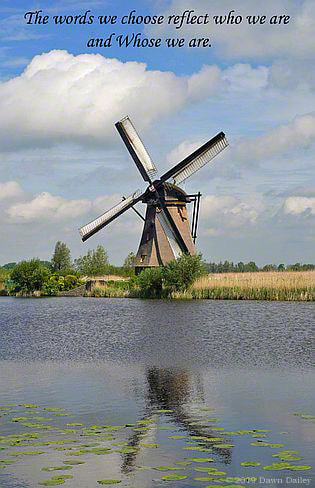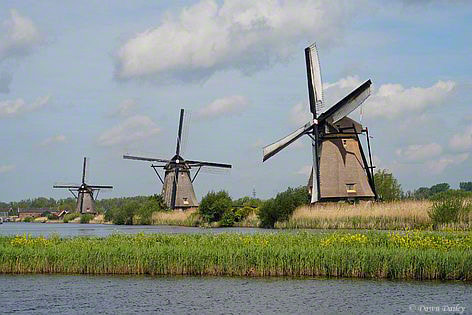“Dank u wel!” I said, as I turned to carefully step up and out of the boat which had taken me through a canal bordered by ancient windmills. The guide I spoke to said with surprise, “You speak Dutch!” I laughed and said I wish I did. I was happy as her next remark complimented me on my accent. She was the third person in less than a week to tell me my Dutch accent was very good!
Prior to a recent trip to the Netherlands, I had used an online language app to learn a few key Dutch phrases. Just the basics – hello, please, thank you. I tried to remember a few other important phrases, like the obvious one, “Where’s the bathroom?” Apparently, my efforts paid off as I passed myself off as a Dutch speaker, at least for a moment!
What I’ve learned in my travels is that when you greet someone in their language, rapport is quickly established and people are much more willing to help you navigate a foreign city. As I’ve worked to become more proficient in French, I’ve experienced first-hand the help and kindness extended to me that might not have happened if I had not been willing to speak the language. In preparing for my travels, I’ve now learned how to say “thank you” in about 8 different languages. Just for the record, I can also say “Cheers” in the same number of languages!
Words matter, regardless of what language we are speaking. We connect with people when we choose our words graciously and carefully. By speaking their language, whether a foreign language or by using words that show we are sensitive to their situation, we demonstrate that they are important to us.
We can use our words to accept people as they are. It’s our choice as to whether we select words that contain judgment or not. Gracious words are void of judgment but laced with love. By accepting people as they are, we point them to the Savior who loves and accepts them, no matter what.
We can use our words to change who we are. When we learn a foreign language, we are changed as our minds become more open to new cultures and new people. By incorrectly pronouncing those foreign words, we also develop humility. Even in our own native language, when we try to understand someone else and their way of speaking and thinking, we become more sensitive. When trying to comfort someone in their grief, we become compassionate. When we restrain our words when angry, we become more understanding and conflicts can be better resolved.
The words we choose reflect who we are and Whose we are. When we begin to live out God’s Word in us, the power of His Word changes us into who He wants us to be. We become more Christ-like when we are more accepting, humble, sensitive, compassionate, and understanding.
Our key verse today says, “Gracious words are a honeycomb, sweet to the soul and healing to the bones.” Gracious words in this verse can refer to God’s Word to us, our words of worship back to God, or our words to each other. In all three interpretations, the result is healing. The grief-stricken can move toward healing when gracious words are spoken to them. Conflicts can be resolved when words are gracious. Even international barriers can be dismantled and connections formed simply by learning a few key foreign phrases.
As a hobby, my dad was a beekeeper. I still have some of his honey which is dark, rich, and utterly sublime. I can’t help but think of Dad’s honey when I read our key verse. Honey does have healing properties. Like a dose of honey, just a few words can heal our souls, down to the bones.
Lord, make my words an offering to You. May I speak gracious words into difficult circumstances and may those words bring healing as they point others to You. In Jesus’ Name, Amen.
Want to subscribe to future posts? Click here.
Text and photograph copyright © 2019 by Dawn Dailey. All rights reserved. Photos of centuries-old, still active windmills in Kinderdijk, The Netherlands.
All scripture quotations, unless otherwise indicated, are taken from the Holy Bible, New International Version®, NIV®. Copyright ©1973, 1978, 1984, 2011 by Biblica, Inc.™ Used by permission of Zondervan. All rights reserved worldwide. www.zondervan.com The “NIV” and “New International Version” are trademarks registered in the United States Patent and Trademark Office by Biblica, Inc.™
Another photo of the windmills at Kinderdijk:


 RSS Feed
RSS Feed